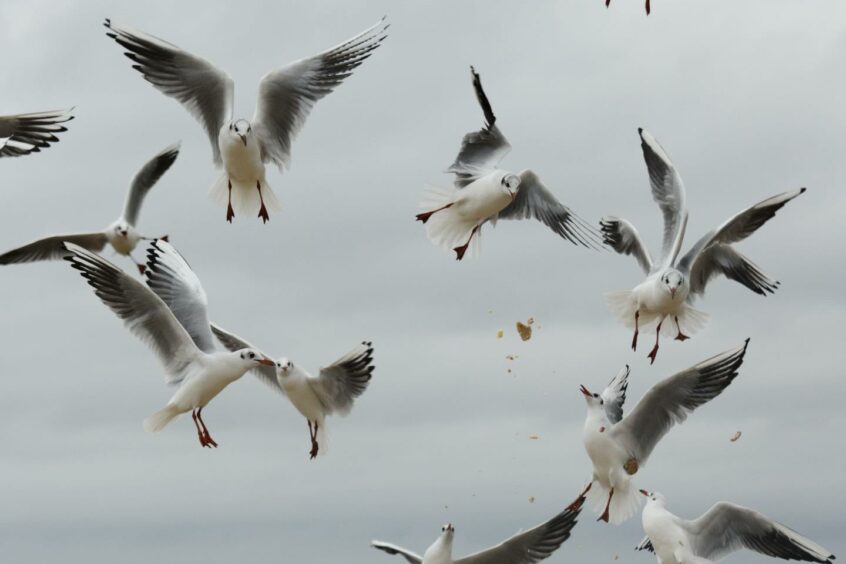It is that time of year again – when your washing goes out on the line and the neighbourhood gulls use it as target practice.
If you are thinking about ways to reduce the nuisance of gulls, here is what you can do about gull nests, and stay within the law.
All species of gull are protected under the Wildlife and Countryside Act 1981 and the Wildlife (Northern Ireland) Order 1985.
This makes it illegal to intentionally or, in Scotland and Northern Ireland, recklessly injure or kill any gull or damage or destroy an active nest or its contents.
So, can I remove a gull nest?
In Scotland and Northern Ireland, it is illegal to prevent birds from accessing their nest.
The Scottish SPCA make it very clear that it is illegal to remove a bird nest that is in use or under construction.
That means when birds are actively in the area making a nest, or being near the nest.
There does not have to be eggs in the nest – just that the gulls are attempting to make the nest.
When is the gull nesting season over?
You will be able to remove the gull nest outside the breeding season, between September and March.
Nature Scot outlines that: “Clearing of nesting material from areas where gulls have previously nested and caused problems in the past is very important in terms of good roof maintenance and management to prevent problems such a blocked drain pipes and gutters and could possibly reduce the attractiveness of a site for birds to nest in future.”
Birds nest throughout spring and summer and some birds will nest more than once during that time.
An artificial nesting box will help you control where birds nest the following year.
What if a gull dive bombs me?
The Scottish SPCA says: “We are aware that gulls often become aggressive when trying to protect their young or nests.
“All species of gulls are protected under the Wildlife and Countryside Act which prevents anyone from injuring or killing them and damaging or destroying an active nest.
“Once nesting season is finished, the gulls will move on.”
One suggestion to protect yourself when the birds are on the nest is to use an open umbrella.
Once they have moved in, the gull has a right in law to be a neighbour of yours.
I am at my wit’s end!
Should the birds pose a risk to public safety or health, you should contact your local council.
Local authorities can deal with each case on an individual basis to determine if the gulls need to be removed or humanely destroyed.
Simple nuisance or minor damage to property are not legally sanctioned reasons to kill gulls.
Can I kill gulls, or destroy their eggs?
Licences can be issued for you to remove a gull nest or even for birds to be killed if there is no non-lethal solution to prevent serious damage to agriculture, the spread of disease, to preserve public health and safety and air safety, or to conserve other wild birds.
Anyone considering action against any gull must first consult Nature Scot for the current licence terms and conditions.
Actions outside the terms and conditions of a general licence or those which have not been permitted by any other individual licences are criminal offences.
What about those four other facts?
- There is no such breed as a seagull. Are you shocked? Seagulls do not exist – but herring gulls, common gulls and laughing gulls do exist.
- Gulls can live for 15 years. So yes, they do remember you, and they do take aim at your washing.
- Gulls are very clever. They learn, remember and even pass on behaviours, such as stamping their feet in a group to imitate rainfall and trick earthworms to come to the surface.
- A small claw halfway up their lower leg enables them to sit and roost on high ledges without being blown off.


